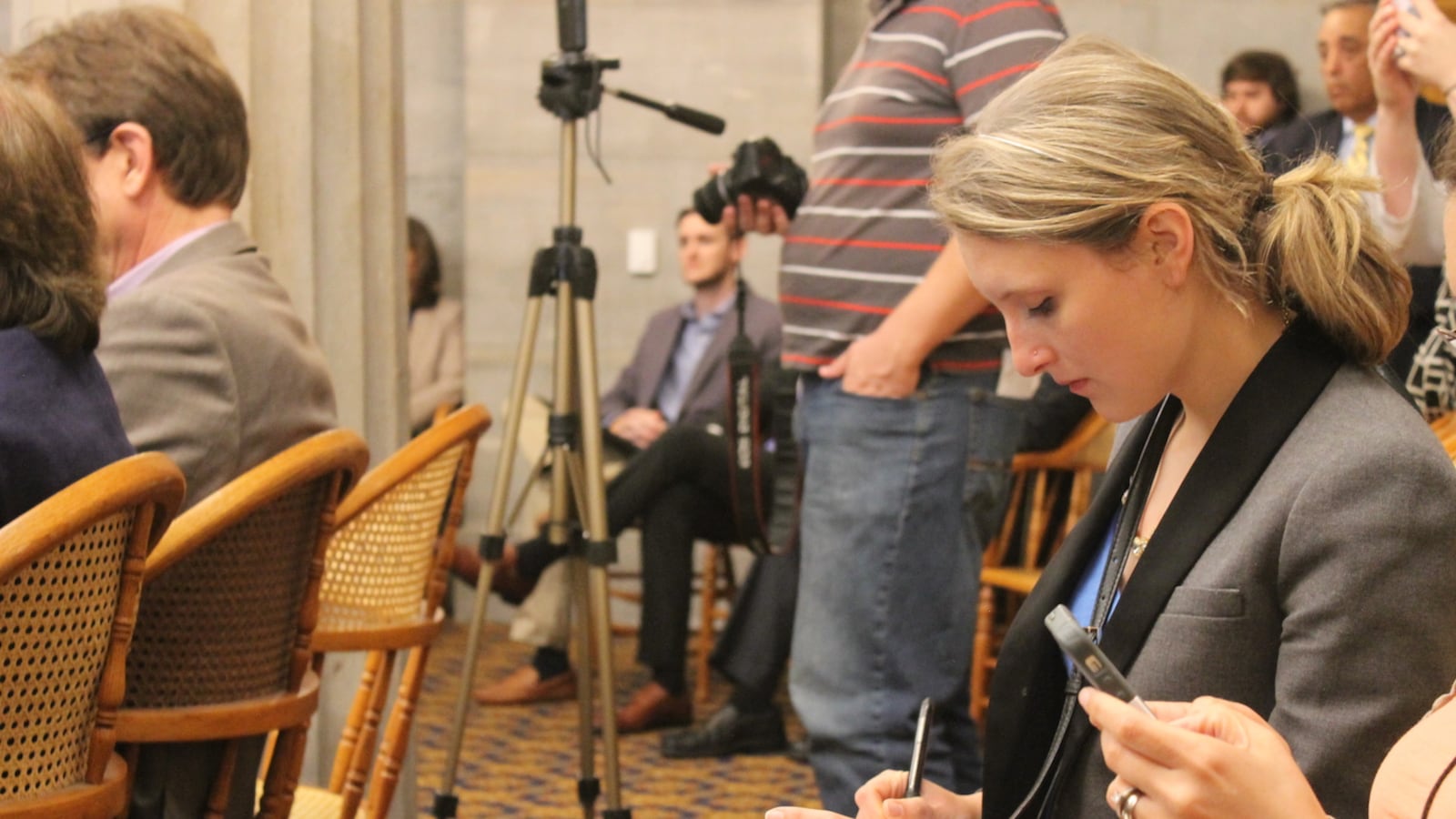For three years, I covered the Statehouse for Chalkbeat Tennessee, reporting on how policies from Nashville trickled down into more than 1,800 public schools across the state.
Now I’m starting back to school myself, pursuing graduate studies aimed at helping me to become a better education journalist. I’m taking with me six things I learned on the job about public education in Tennessee.

1. Apathy is often cited as a major problem facing education. That’s not the case in Tennessee.
I heard from hundreds of parents, educators, and students who were passionate about what’s happening — good and bad — inside of schools. I covered crowded school board meetings and regularly scrambled for an open seat at legislative hearings where parents had filled the room after driving since dawn to beat the opening gavel. Not incidentally, those parents usually came from communities with the “worst” schools and the lowest test scores. While many disagreements exist about the best way to run schools, there is no shortage of people, particularly parents and educators, who care.
2. Tennessee has one of the most fascinating education stories in America.
I’ve had a front-row seat to massive changes in K-12 education under reforms ushered in by Race to the Top — an overhaul being tracked closely well beyond the state’s borders. But the national interest and import doesn’t end with changes stemming from the $500 million federal award. Tennessee is home to some of the nation’s premier education researchers, making its classrooms laboratories for new ideas about pre-K, school turnaround, and literacy instruction, just to name a few. And at the legislature, more lobbyists are devoted to education than to most any other cause. A lot of eyes are on Tennessee schools.
3. The education community is not as divided as it looks.
During the course of just a few years, I watched state lawmakers change their positions on accountability and school vouchers. I witnessed “anti-charter” activists praise charter leaders for their work. I chronicled task force meetings where state leaders who were committed to standardized testing found middle ground with classroom educators concerned that it’s gone too far. In short, a lot of people listened to each other and changed their minds. Watching such consensus-building reminded me that, while there are no simple debates about education, there is a widespread commitment to making it better.
4. Money matters.
Even when stories don’t seem to be about money, they usually are. How much money is being spent on testing, teacher salaries, school discipline reform? How much should be available for wraparound services? Why do some schools have more money than others? Is there enough to go around? Tennessee leaders have steadily upped public education spending, but the state still invests less than most other states, and the disparities among districts are gaping. That’s why more than a handful of school districts are battling with the state in court. Conversations about money are inextricable from conversations about improving schools.
5. Race is a significant education issue, but few leaders are willing to have that conversation.
More than 60 years after Brown v. Board of Education, Tennessee’s schools are largely racially segregated. Yet most policymakers tread lightly, if ever, into conversations about achieving real racial integration. And in many cases — such as a 2011 law enabling mostly white suburban Shelby County towns to secede from the mostly black Memphis district — they’ve actually gone backwards. Then there’s the achievement data. The annual release of test scores unleashes a flurry of conversation around the racial achievement gap. But the other 11 months of the year, I heard little about whether state and local policies are closing those gaps — or contributing to them — or the historical reasons why the gaps exist in the first place. To be sure, state leadership is trying to address some of Tennessee’s shortcomings. For example, the State Department of Education has launched modestly funded initiatives to recruit more teachers of color. But often, race and racism are the elephants in the room.
6. Still, there’s lots to celebrate.
If there were unlimited hours in the day, I could have written thousands of stories about what’s going right in public education. Every day, I received story ideas about collaborations with NASA in Oak Ridge, high school trips to Europe from Memphis, gourmet school lunches in Tullahoma, and learning partnerships with the Nashville Zoo. Even in schools with the steepest challenges, they were stories that inspire happiness and hope. They certainly inspired me.
Grace Tatter graduated from public schools in Winston-Salem, N.C., and received her bachelor’s degree in history from the University of North Carolina. She’s now pursuing a master’s degree in specialized studies at the Harvard Graduate School of Education.
About our First Person series:
First Person is where Chalkbeat features personal essays by educators, students, parents, and others trying to improve public education. Read our submission guidelines here.

